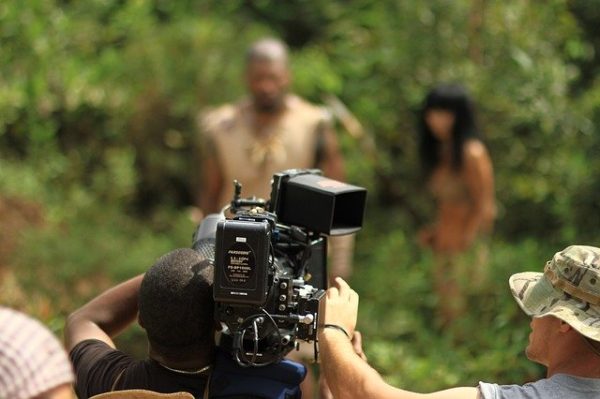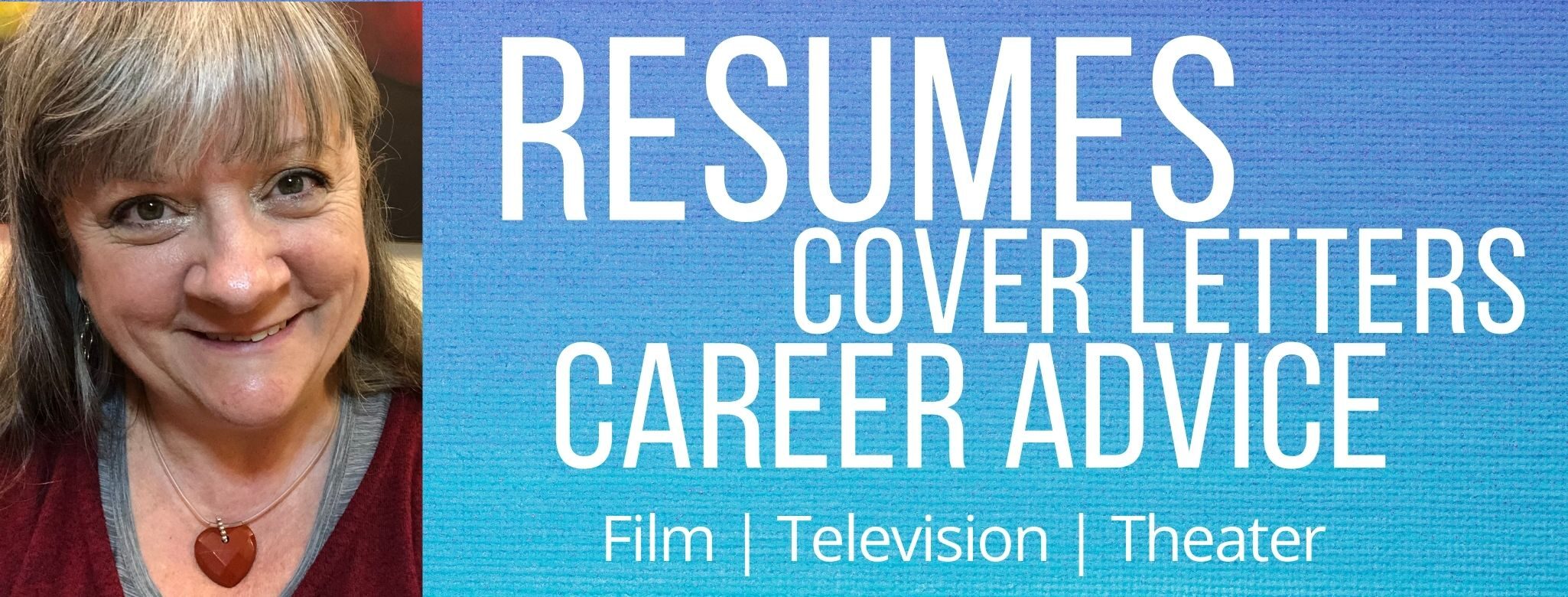
Sometimes we can feel spoiled for choice. There are so many projects being initiated, especially early in the year, so many people clamoring for help with their film or web series or other creative venture. How do we choose where to devote our time, especially if we have multiple opportunities?
When I started with this post, I didn’t think there was a single overarching question that will make this much easier. Rather, it is a process where only you can determine what is right. But after working through it, I realized that there is one good question and it is:
- Will this project move me towards my long term goals in the business?
Still, there are some ways to break this really big question down. In the past I have shared my job hunting rubric – a Venn diagram for helping you clarify and define your jobsearch. The three areas are:
- Does this have sufficient remuneration and benefits?
- Do I have the right qualifications and experience (or can I gain the needed knowledge to be a reasonable candidate?)
- Is it appealing and will it be fulfilling?
For joining a project, the questions can be adapted.
Remuneration – the tangible value you will gain from participation.
How much is the pay, what are the benefits offered, and how long is the project? Ask all the dull, practical and pragmatic questions.
There is a lot said about the need to work for free to get a start in the business. I discourage it where possible. If a project has at least some pay, that is better. The arts seem like the only industry where people who are not actual students are asked to work entry level jobs for free, and still conduct themselves professionally as if they were being paid properly.* Is it meant to be some kind of test of your commitment to your passion? Imagine someone who aspired to own their own restaurant one day, being told they could work for free at Burger King to get the “experience” for their resume. (I looked it up – management trainees at BK are paid.)
There are times when it is perfectly reasonable to work for free, such as when you have a college internship or are helping your student colleagues with their projects (as they will help with yours.) Sometimes you have a pre-existing relationship with the filmmaker or artist, and so your buddy asks for your help. Fine. Sometimes major players have after-graduation programs that are helpful because of the level of prestige they offer, even if they have no or limited pay. I’m thinking of things like the NBCUniversal Page program. The on-going learning opportunity will be where the value lies, along with access to a higher level of network.
But please remember the low budget trap, and do consider that every minute you spend working for free is a minute you are not using to apply for other jobs and continue your job search. So it has to be worth it for other reasons. It is most likely better to work with someone creative and interesting, whom you believe is going places, and for a project that is interesting and different, than to work on something that has a low budget because it is a basic genre piece.

If you are going to work for free, at least make sure that the people are talented and serious filmmakers, where you will learn some useful stuff, if not highly prestigious individuals or companies.
Is this going to be a credit worth sharing on your resume? Is it going to be a good enough movie that you can add clips to your reel? I remember when the phrase used to be “Copy and Credit”. In the olden days a copy was something tangible – a VHS or later DVD of the finished movie. These are things that cost money, actually. Now a “copy” is likely to be a digital download. Good – hopefully, you can still use clips for your reel.
Another question to ask, even when a job is paid, is whether it is likely to “roll over” – that is to become a Union show. IATSE has a great health plan, and great retirement benefit opportunities. In this case the days that you worked all count towards your membership requirements in different locals. Keep all paystubs, time cards (if used) and call sheets. For 10 years (tax records should be kept that long anyway.)
Only you can determine whether you have the actual wherewithal to give your time to a project where you will be underpaid or not receive employee benefits, like health care. Only you know your own financial resources and commitments. In the end, in the absence of a trust fund, working for insufficient pay is unsustainable.
*I’m not talking about volunteering with a non-profit organization here. In those situations, as I know from experience, you-the-volunteer have the chance to declare when you need time off (give reasonable notice), and the gig will usually still be there when you come back.
Qualifications – what will I bring to the project?
When this issue is about job applications, the list of responsibilities, duties or expectations from the hirer, will be right there in the job listing or at least the job title. In many cases, your past employment credits and portfolio/reel/writing samples are enough to show whether you have sufficient qualifications, or the evident capacity to learn swiftly enough to become qualified quickly.
Studies show that men and women differ in how closely they feel they must match the requirements before applying to a job. With men, it is something like if they have a 60% match, they will apply. Women tend to only apply when they have over 80%, up to 100% matches, thereby self-selecting to miss out on applying to some jobs where they might have a reasonable chance.
In considering this rubric for making a choice, and with the overaching question of moving towards your goals, will this project stretch you enough, or be enough of a creative challenge – as we creative types look for. At the same time, do we have the knowledge, skills or connections to contribute enough to the success of the project, or will others be left having to take up our inexperienced slack?
Obviously, with every project that you participate in, your skills might be enhanced as you learn more about the creative process, the practical aspects of getting it done, and working with people. You will learn about yourself and your own abilities and preferences too. However, producers want someone to do a job, not use their project in lieu of film school. So, have a reasonable understanding of what the job title entails, and don’t have an expectation that you will be hired as a department head, if you have only been a PA, or only have student credits.
One thing you certainly don’t want, is for your lack of skills to be the reason a project is headed towards a failure-cliff so horribly that you get fired. Mistakes and struggle are essential for learning, and I recommend that you always undertake a project post-mortem, even if you are doing this privately for your own growth. (Hmm – sounds like a good idea for a post.)
But actual failure might be more serious. For example, the definition of a real deadline is that it costs money if it is missed. A real failure might cost real money, money that has to be found elsewhere in the budget. People might lose their jobs and find it tough to get another one. No-one likes the feeling of doing badly, and certainly getting fired, especially in a way that is visible to the world, is an awful feeling too, almost as bad as the feeling of letting people down.
So the answer here is to be honest about what you can bring to your department and the project as a whole, to be honest about your current weaknesses (and how to answer that question in a job interview is an upcoming post), and to know where you can turn for mentorship or assistance if you are daunted by a challenge. Sometimes we are processing through the learning stage of “don’t know what we don’t know”, but hopefully that only lasts a short while.
Interest – is it a cool project?
It’s great when a project is appealing and fulfilling personally for any number of reasons. The chance to work with people you have always wanted to, or loved being with in the past, or the genre you love, or the stars, or the location being somewhere awesome. Maybe it’s a chance to build something you have always wanted to, or is addressing an issue of personal importance to you. Maybe the script is really original, and creative challenges abound.
Sometimes this aspect can make up for other lacks, like low pay. Chances are this is the aspect that will have the clearest apparent path to your goals. “This is the kind of work I want to do.” Great. Don’t allow affection, enthusiasm and excitement to take the place of professionalism, proper planning and enough budget to realize the vision, or the recipe is for disillusion, instead of satisfaction. Many an awesome script has been wrecked by ineffective execution or external pressures.
In terms of building a long term career, enjoying your work is really helpful. Creative careers are tough, calling on all your persistence and tenacity. It’s better to love it. Again, there is the idea of what is sustainable. All three aspects are needed to craft a fulfilling career over time. Without overall balance – more than any single gig, but over several, or over time – people can end up burnt out, stressed, disappointed or disillusioned, or even depressed. Without balance, people end up leaving the business in frustration.
Good luck with your job search. I hope you have many fabulous options.

